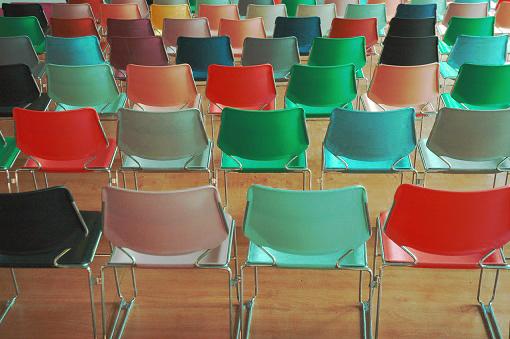A new report from the Institute of Fundraising’s Change Collective, called Who Isn’t In The Room?, has revealed the lack of diversity amongst UK fundraisers from charities of all sizes. Just 2% of fundraisers in the South West are from a BAME (Black, Asian and Minority Ethnic) group, and only 9% of fundraisers across the UK are BAME. Statistics for disabled or LGBT+ fundraisers are similarly disappointing, especially when compared to the national average across all workforces.
The data is based on responses from 428 organisations, covering 6,912 individual fundraisers. 22% of organisations surveyed have a turnover of less than £500,000 per year, and 38% of organisations employ less than three fundraisers. Results included:
- 3% of fundraisers have a disability; the national average of working age disabled adults is 18%.
- 4% of fundraisers identify as LGBT+; the national average of self-identifying lesbian, gay and transgender working adults is 2%, but this doesn’t capture the full spectrum of LGBT+.
- 57% of fundraisers are aged 25-39; less than 10% are aged 55 and older.
- 76% of fundraisers are women and 0.1% are non-binary. The 2018 Civil Society Almanac suggested that 68% of charity sector employees are female.
- Whereas 2% of fundraisers in the South West are BAME, the statistics are highest in the West Midlands (13%), the North West (12%) and London (11%). The Change Collective noted that London has an overall BAME population of 40%, so the percentage of BAME fundraisers is in no way representative of the city’s diversity.
According to the 2011 Census, 16% of Bristol’s population is BAME and 4.6% of people in the South West are BAME. We would therefore expect the proportion of BAME fundraisers in the region would be closer to 4.6%, and a Bristol equivalent would be closer to 16%.
Equality, diversity and inclusion measures
The report also examined which measures charities are taking to increase diversity:
- 97% of fundraising employers offer part-time or flexible working. But is it offered to help employees, or because there is no full-time equivalent role?
- 70% of charities have an Equality, Diversity and Inclusion (EDI) policy in place, but only 35% of charities require staff to do EDI training. Meanwhile, 39% of charities have a member of staff leading on EDI.
- 13% of charities have EDI targets in place. This begs the question: without setting targets, how can a charity look to become more inclusive?
The IOF created an expert advisory panel on EDI in February 2018, and the Change Collective was launched in December 2018. This report is the next stage in its continued campaigning for a diverse and fair fundraising profession.
